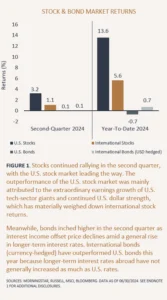Introduction
As the U.S. economy faces uncertainty in 2024, fears of a recession have become a major concern for businesses, policymakers, and everyday Americans. With inflationary pressures, interest rate hikes, and global economic challenges, many are wondering: Is a recession inevitable, or can the economy weather the storm?
What Is Driving Recession Fears?
Several economic indicators have raised alarms about a possible downturn:
- High Interest Rates – The Federal Reserve’s aggressive rate hikes aimed at curbing inflation have increased borrowing costs, slowing down investments and consumer spending.
- Stock Market Volatility – Fluctuations in the stock market reflect investor uncertainty and concerns about corporate earnings.
- Layoffs and Job Market Concerns – While unemployment remains relatively low, layoffs in tech and other industries signal potential weaknesses in the labor market.
- Housing Market Slowdown – Rising mortgage rates have cooled demand for homes, affecting real estate values and construction jobs.
- Global Economic Uncertainty – Geopolitical tensions, supply chain disruptions, and economic slowdowns in other major economies can have ripple effects on the U.S. economy.
Signs of Resilience
Despite recession fears, some factors suggest that the economy may remain resilient:
- Strong Consumer Spending – While inflation is a concern, consumer demand has remained steady, driving economic growth.
- Low Unemployment Rates – A tight labor market and wage growth help sustain household incomes and spending.
- Business Investments – Some sectors, such as renewable energy and artificial intelligence, continue to see strong investment and expansion.
- Government Stimulus Measures – Federal and state initiatives aimed at infrastructure development and economic support may help offset economic slowdowns.
What Can Americans Do to Prepare?
While a recession is not guaranteed, financial preparedness is key to navigating uncertain economic times:
- Build an Emergency Fund – Having a financial cushion can provide security in case of job loss or unexpected expenses.
- Reduce Debt – Paying down high-interest debt can help ease financial stress during economic downturns.
- Diversify Investments – A balanced investment portfolio can help mitigate risks associated with market fluctuations.
- Enhance Job Skills – Staying competitive in the job market by learning new skills or exploring alternative career paths can provide greater job security.
Conclusion
While concerns about a recession in 2024 are valid, the U.S. economy has shown resilience in the face of challenges. By staying informed and financially prepared, Americans can navigate potential economic turbulence with confidence. The coming months will be crucial in determining whether the economy enters a downturn





